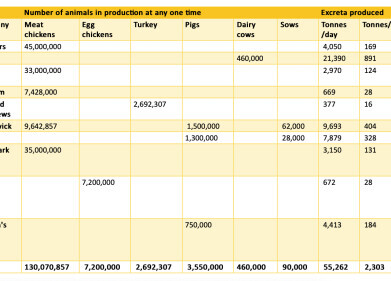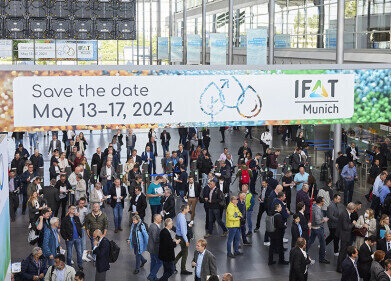Waste Management
Anaerobic Digestion Experts Provide Masterclass in Renewables in North East
Jun 20 2011
Experts on anaerobic digestion (AD), a process which breaks waste into renewable energy and valuable fertiliser, gathered in Turriff, Aberdeenshire, this week to provide interested north east farmers, businesses and community groups with a masterclass on AD.
The Soil Association event included speakers from Zero Waste Scotland, the Energy Saving Trust, Earthcare and BiogenGreenfinch. As well as providing an overview of AD and how it works, other topics covered included, feedstocks, maximising the potentional of digestate, FITS, planning permission and connecting to the grid.
AD involves the breaking down of biodegradable material using microorganisms in the absence of oxygen. It is growing increasingly popular with farmers and local authorities across Scotland as it transforms common waste, such as animal slurry or household food waste, into two useful products. Renewable energy is generated through the biogas produced from the process, which can be used as an electricity supply on site or passed onto the National Grid. In addition, the process generates digestate, or biofertiliser, which is naturally high in nutrients and is generally much less expensive than commercially bought fertiliser.
Louise McGregor from Zero Waste Scotland commented: “Anaerobic digestion is widely used across Europe and is gaining momentum in Scotland due to its versatility. An increasing number of local authorities are using AD to divert food waste from landfill, generate renewable energy and restore former landfill sites with the digestate.
“Arable farmers are finding the potential financial benefits of AD increasingly attractive, whether it’s through saving on energy bills or fertiliser costs. Community groups are also beginning to realise the benefits and view AD not just as a waste management solution, but as an income stream. The whisky industry is also taking note, with three distilleries already running AD on site.
“Events like this are crucial to raising the profile of AD in Scotland and are a great opportunity to explain the process and its benefits. Scotland is committed to sending a maximum of 5% waste to landfill by 2025, and AD will make a large contribution to our achievement of this goal.”
The day also included a visit to the Gask Farm AD facility in Turriff, which uses pig slurry and abattoir waste to ‘feed’ its digester and produce hot water, electricity and a high nitrogen fertiliser. The 800 acre farm commissioned its AD facility in 2006 and since then has cut its inorganic fertiliser costs by 80%, turning the manager Andrew Rennie into a staunch advocate of AD.
Andrew commented: “The decision to install a digester was based on a mixture of commercial and environmental considerations. At the time it did seem like a big investment, but we saw the opportunities available.
“It makes sense to make use of a waste product that’s already on-site. By using a digester we now produce all of our own electricity, have cut down on our fertiliser costs and have become a more sustainable farm. We’re also supplying electricity to the National Grid.”
Lyn Matheson, Soil Association Agricultural Development Officer said: "Anaerobic Digestion is specifically mentioned in the Scottish Government Climate change delivery plan. Soil Association Scotland provided this practical and informative event as part of our Climate change programme which is partially funded by the Scottish Government. Attendees found out what is involved in every aspect of commissioning and running an Anaerobic Digestion plant."
Events
May 05 2024 Seville, Spain
May 13 2024 Munich, Germany
May 23 2024 Beijing, China
May 23 2024 Beijing, China
Jun 10 2024 Algiers, Algeria













